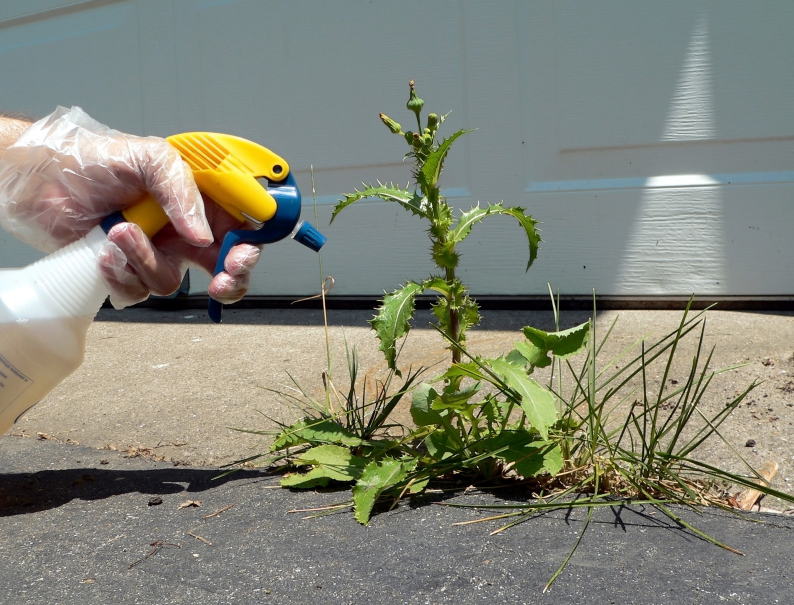by Richard Hawkins
Beginning with the end of the 20th century, we embarked on a path of genetically engineered crops. Now, nearly all of our staple foods including corn, soy canola and sugar beets are grown from genetically modified seed owned exclusively by a few large corporations. The incredible benefits touted from the new and improved monoculture farming included improved yields and one step weed control. The chemicals to control the weeds these plants were engineered to tolerate are owned by the same corporations that own the seeds. A perfect unnatural sync.
What could possibly go wrong?
Well, the yields did not really turn out as well as expected. There are numerous suspected health issues just now coming to light from ingestion of these “harmless” substances. Chemical-dependent farming has pretty much destroyed the topsoil. Now we have inadvertently created something new. Let me introduce you to superweeds!
Over time, with constant exposure to weed killers, nature will find a way and eventually a weed will survive. This plant will seed and then we have a hundreds, then thousands, then millions of weed plants that these are just fine with the chemicals they have become accustomed to. Now what do we do? Heavier chemical applications, then more toxic and expensive chemicals, and eventually reverting to chemicals we had long abandoned due to their toxicity and health risks.
This problem is not one on the distant horizon; it is here now. I recently returned from an agricultural area in North Dakota, and several types of resistant weeds were showing up. This problem has existed for a while in the South with weeds like pigweed beginning to dominate fields. There are 21 weed species known to be resistant to the most common herbicide, glyphosate (Round-Up).
Acreage affected by these nature-modified weeds is growing rapidly. The proliferation of chemical sprays needed to combat them will be hard to separate from other nearby crops that have no need for chemical applications.
The cost of farming even more dependent on chemicals will be borne by farmers and eventually the consumers in the grocery lines. As chemical use increases, we can certainly expect a further toll on nature and human health.
Weeds have the place in nature as do all things on our planet. They help to bring bad soil back to life. There is a symbiosis between many beneficial insects and animals dependent upon weed varieties. Every weed is not a bad weed.
Humans have not always needed to grow food this way. There are healthier alternatives, and, for our long term health and the health of our planet, we should consider making investments to promote these alternatives. Consider adding your voice to GMO labeling on food. Why should we not know what is in the food we eat? Buy food from local farmers, and ask them how they grow their food. Buy organic, a surefire way to know your food is chemical-free. Look up and promote “permaculture,” and consider if this is what agriculture should be.
 Localecopia is a nonprofit organization based in Palm Beach, Florida focused upon bringing businesses, producers, educators and government organizations together for the purpose of lessening our carbon footprint by supporting local product consumption, helping operations better utilize waste and bringing together individuals to help achieve sustainable business practices. For information about Localecopia, please visit www.localecopia.org.
Localecopia is a nonprofit organization based in Palm Beach, Florida focused upon bringing businesses, producers, educators and government organizations together for the purpose of lessening our carbon footprint by supporting local product consumption, helping operations better utilize waste and bringing together individuals to help achieve sustainable business practices. For information about Localecopia, please visit www.localecopia.org.

